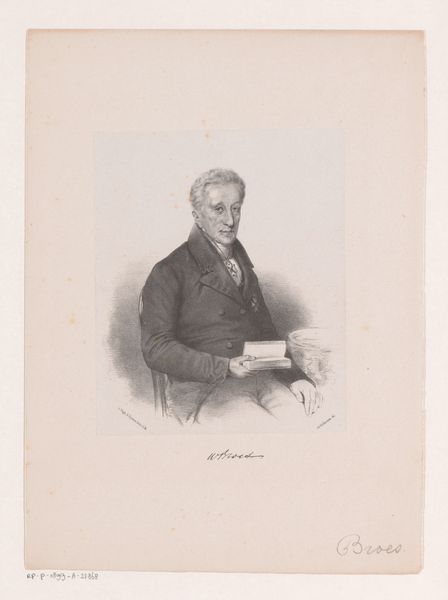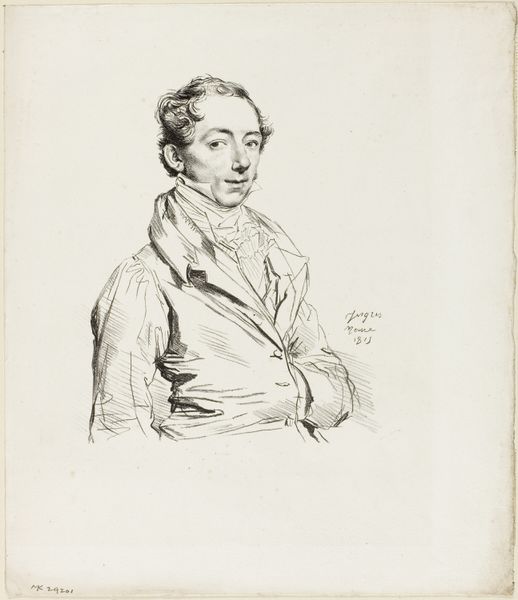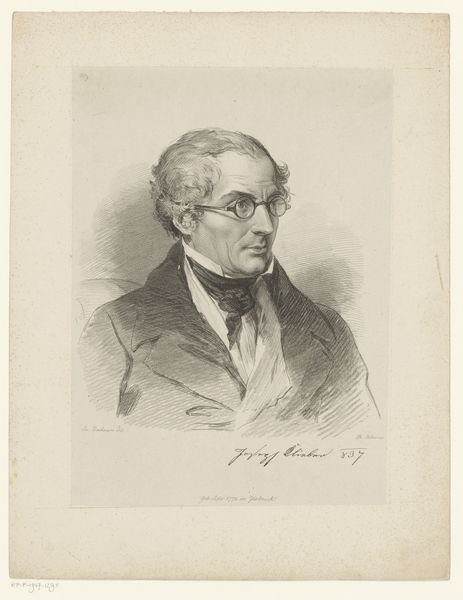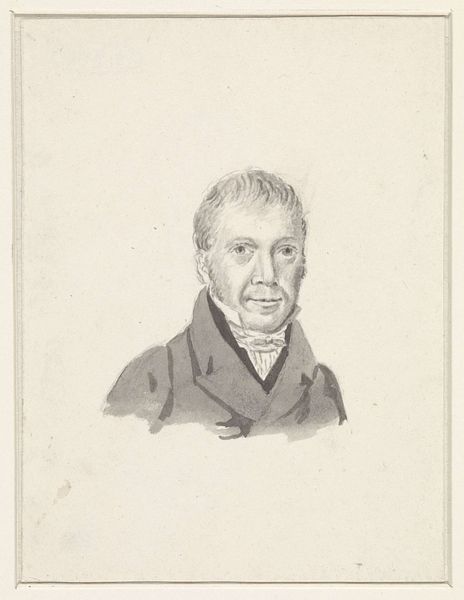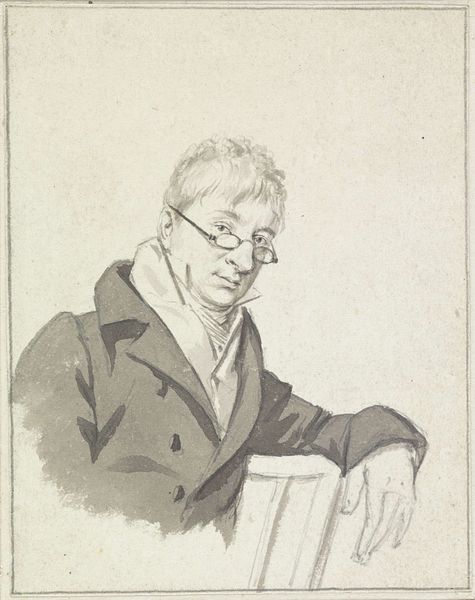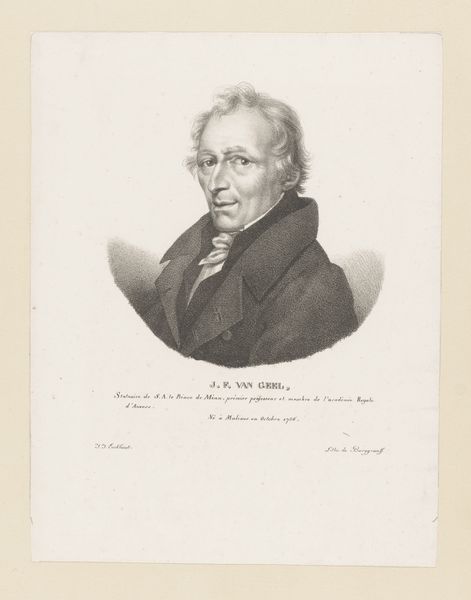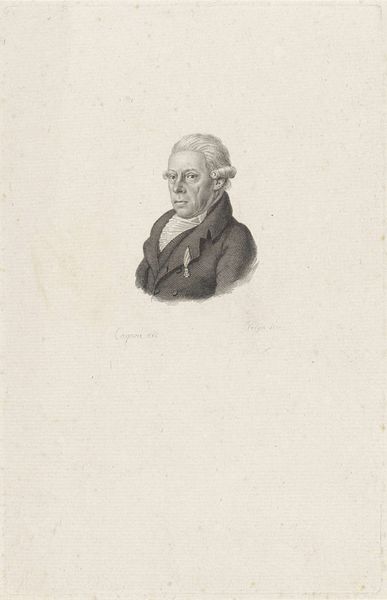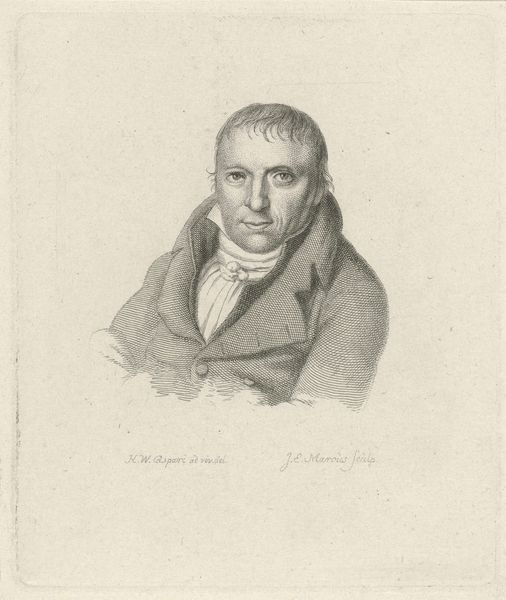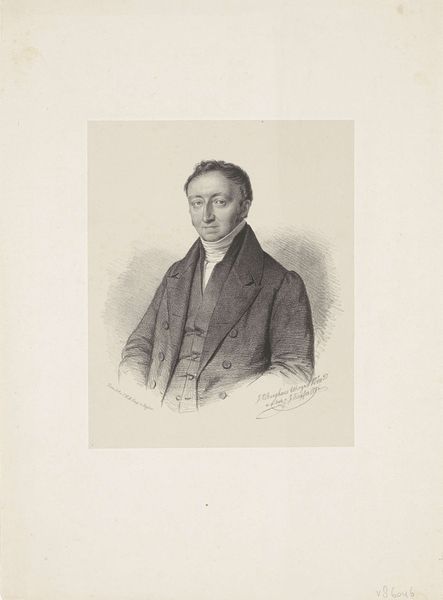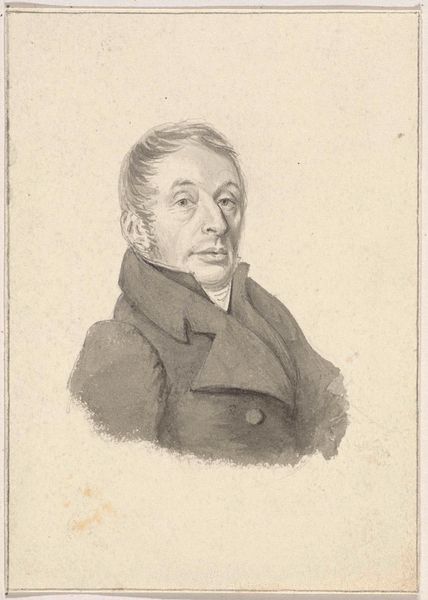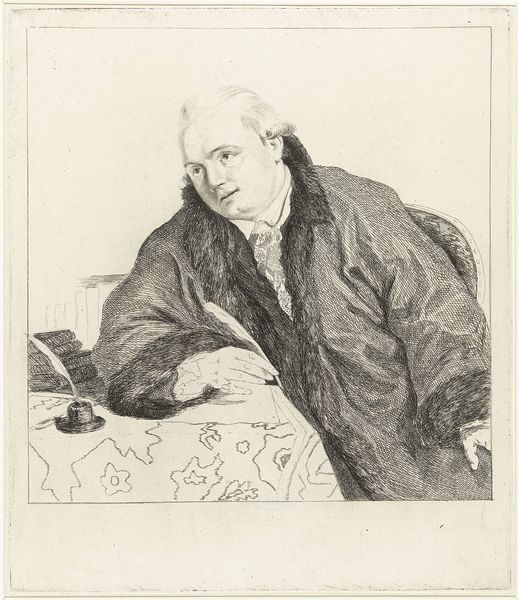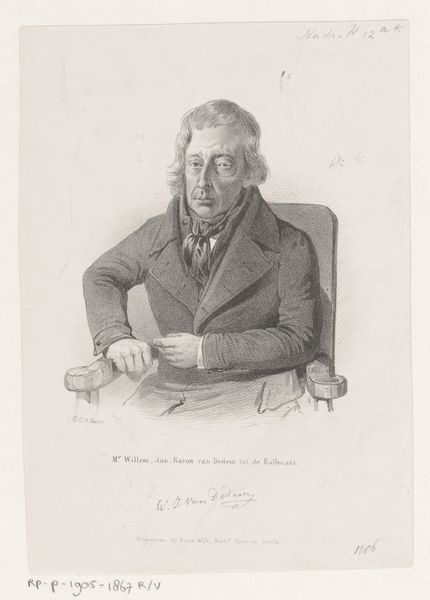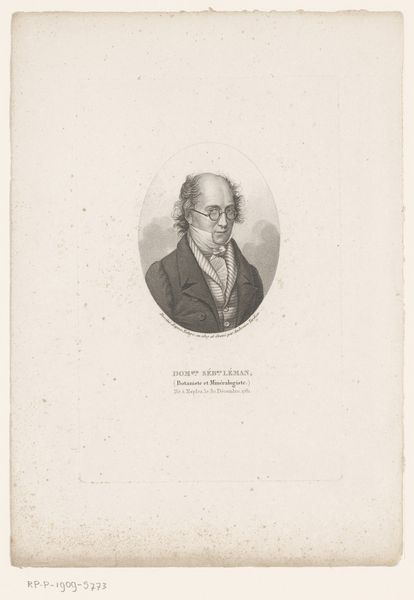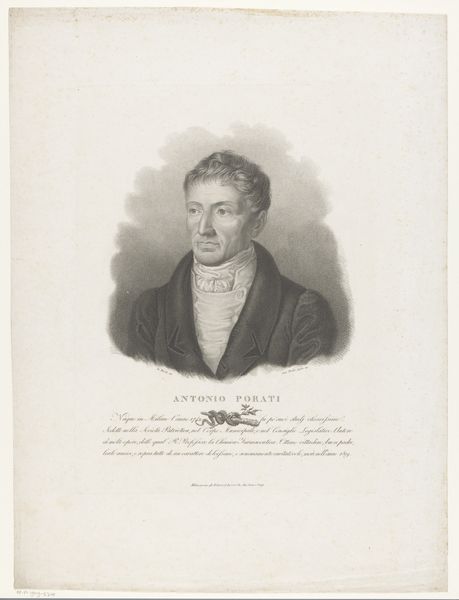
engraving
#
pencil drawn
#
neoclacissism
#
light pencil work
#
pencil sketch
#
old engraving style
#
personal sketchbook
#
portrait reference
#
pencil drawing
#
sketchbook drawing
#
portrait drawing
#
pencil work
#
engraving
Dimensions: height 109 mm, width 102 mm
Copyright: Rijks Museum: Open Domain
Editor: So, this is Jacob Ernst Marcus’s "Portrait of François Joseph Pfeiffer II," made in 1815. It’s an engraving, and I'm struck by how direct and… well, ordinary the subject looks. It's a bit disarming for a portrait. How do you read this work? Curator: It's a fascinating piece, isn't it? Beyond the surface-level portrayal of an individual, let’s consider the socio-political context of 1815. Think about the rise of the bourgeoisie, and how portraiture, previously reserved for the elite, becomes a tool for representing this emerging class. Who was Pfeiffer, and how does this image challenge or reinforce societal power structures of the time? Editor: That's interesting. I hadn’t considered the power dynamic. So you are saying it democratizes portraiture? Curator: Precisely. Now, let's examine the visual language. The subject's gaze is level, almost confrontational. There's an honesty to the depiction. The attention to detail in his clothing contrasts with the sketch-like quality of the background. What statement do you think Marcus is trying to make about Pfeiffer’s identity, class, and role within society through this interplay of techniques? How much do you think this depiction challenges classical standards? Editor: I see your point! Maybe the contrast shows the shift from classical representation to something more… real. It reflects a new way of seeing people. Curator: Exactly. How might feminist theory critique this work, particularly in its construction of masculinity and representation of power? Editor: Goodness. I see the figure portrayed as perhaps not overtly powerful but steady, respectable. A bit serious. How would we unpack this, socially? Curator: Consider this against the backdrop of evolving gender roles. Where does Pfeiffer stand, socially, politically, economically? It tells a multilayered story. Editor: I never thought about how an image could encapsulate all those different social forces. It changes how I'll look at portraits from now on. Thank you. Curator: My pleasure. That's the power of art – to spark these crucial conversations across time and disciplines!
Comments
No comments
Be the first to comment and join the conversation on the ultimate creative platform.
